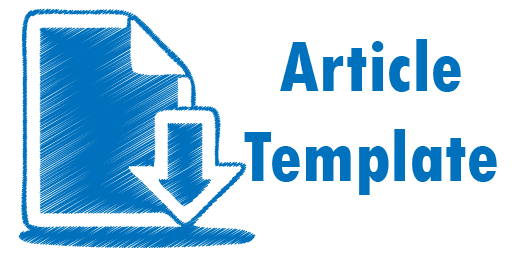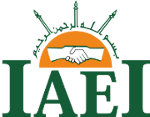The Role of Islamic Philanthropy in Natural and Humanitarian Disaster Management
DOI:
https://doi.org/10.47498/tasyri.v17i1.3626Keywords:
Islamic Philanthropy, Natural Disaster Management, Humanitarian, Socio-EconomicAbstract
This study aims to comprehensively explore and understand the role of Islamic philanthropy in handling natural and humanitarian disasters by exploring how Islamic philanthropy, through its instruments such as zakat, infaq, sadaqah, and waqf, can serve as a tool to strengthen community resilience and build social solidarity. This study uses library research with literature analysis techniques carried out integratively and comprehensively to identify and categorize data assisted by various relevant theories. The results state that Islamic philanthropy reflects the values of justice, solidarity, and social care, playing a vital role in disaster management and community recovery through zakat, infaq, sadaqah, and waqf. In the digital era, this philanthropy has the opportunity to pioneer global social empowerment by utilizing technologies such as Islamic crowdfunding and crypto waqf innovations, enabling rapid, widespread, and accountable distribution. However, this great potential must be accompanied by a commitment to ethics, security, and transparency to ensure Islamic philanthropy remains relevant and contributes progressively to sustainable socio-economic resilience.
Downloads
References
Barnett, M. N. (2013). Humanitarian governance. Annual Review of Political Science, 16(1), 379–398. https://doi.org/10.1146/annurev-polisci-012512-083711
Beddu, S., Karimullah, S. S., Muslim, A., & Basuki, N. A. (2024). From Doctrine to Action: Islamic Law’s Journey towards Social Change. Jurnal Wawasan Yuridika, 8(1), 1–24. https://doi.org/10.25072/jwy.v8i1.4177
Bunaiya, M., Islami, A., & Karimullah, S. S. (2022). Optimization of Productive Ziswaf by Ziswaf-Based Minimarkets (Case Study of Alif Point Mart Minimarket in Padang City). Imara: JURNAL RISET EKONOMI ISLAM, 6(1), 13–25. https://doi.org/10.31958/imara.v6i1.5661
Diallo, A. T., Gundogdu, A. S., Diallo, A. T., & Gundogdu, A. S. (2021). Economic empowerment, zakat, waqf, and social infrastructure. Sustainable Development and Infrastructure: An Islamic Finance Perspective, 77–93. https://doi.org/10.1007/978-3-030-67094-8_5
Dinata, M. F. (2018). Analisis Hukum Islam Terhadap Sistem Pengelolaan Dana Zakat di Baitul Mal Aceh Singkil. AT-TASYRI’: JURNAL ILMIAH PRODI MUAMALAH, 10(2). https://doi.org/10.47498/tasyri.v10i2.213
Dirie, K. A., Alam, M. M., & Maamor, S. (2023). Islamic social finance for achieving sustainable development goals: a systematic literature review and future research agenda. International Journal of Ethics and Systems. https://doi.org/10.1108/IJOES-12-2022-0317
Faizin, M., Karimullah, S. S., Faizal, B. T. W., & Lubis, I. H. (2024). Development of Zakat Distribution in the Disturbance Era. Jurnal Ilmiah Mizani: Wacana Hukum, Ekonomi Dan Keagamaan, 10(2), 186–197. https://doi.org/10.29300/mzn.v10i2.2997
Fatah, A. A., Andriani, N., & Hidayat, G. N. (2023). Unleashing The Philanthropy Fund’s Potential for A Sustainable Tomorrow: A Comprehensive Overview. Journal of Infrastructure Policy and Management (JIPM), 6(2), 89–102. https://doi.org/10.35166/jipm.6.2.89-102
Fauzia, A. (2017). Islamic philanthropy in Indonesia: Modernization, islamization, and social justice. Advances in Southeast Asian Studies, 10(2), 223–236. https://doi.org/10.14764/10.ASEAS-2017.2-6
Haerunnisa, H., Sugitanata, A., & Karimullah, S. S. (2023). Analisis Strukturalisme Terhadap Peran Katalisator Instrumen Keuangan Syariah dalam Mendorong Pembangunan Berkelanjutan dan Tanggung Jawab Sosial. Al-’Aqdu: Journal of Islamic Economics Law, 3(2), 124–134. https://doi.org/10.30984/ajiel.v3i2.2853
Herianingrum, S., Supriani, I., Sukmana, R., Effendie, E., Widiastuti, T., Fauzi, Q., & Shofawati, A. (2024). Zakat as an instrument of poverty reduction in Indonesia. Journal of Islamic Accounting and Business Research, 15(4), 643–660. https://doi.org/10.1108/JIABR-11-2021-0307
Hamsa, A., & Ramly, A. (2022). Determinants of financial literacy on micro waqf banks in aceh. Share: Jurnal Ekonomi dan Keuangan Islam, 11(1), 229-250.
Hamsa, A., & Ramly, A. (2024). Participation And Role Ulama In Eradication Of Moneylender In Aceh. Jurnal Ilmiah Ekonomi Islam, 10(2), 1844-1852.
Insani, N., Ibrahim, Z. S., Karimullah, S. S., Gönan, Y., & Sulastri, S. (2024). Empowering Muslim Women: Bridging Islamic Law and Human Rights with Islamic Economics. De Jure: Jurnal Hukum Dan Syar’iah, 16(1), 88–117. https://doi.org/10.18860/j-fsh.v16i1.26159
Insani, N., & Karimullah, S. S. (2023). Justice for Nature: Integrating Environmental Concerns into Legal Systems for Adequate Environmental Protection. Jurnal Hukum Dan Peradilan, 12(1), 129–158. https://doi.org/10.25216/jhp.12.1.2023.129-158
Ismail, S., Hassan, M., & Rahmat, S. (2023). The role of waqf in sustainable economic development. In Islamic Social Finance (pp. 14–34). Edward Elgar Publishing. https://doi.org/10.4337/9781803929804.00010
Kakar, S. H., Zaenal, M. H., & Jalil, F. Y. (2022). Islamic Social Welfare and the Role of Zakat and Islamic Charity in the Family-Resilience: the Theoretical Review. Indonesian Conference of Zakat-Proceedings, 82–98. https://doi.org/10.37706/iconz.2022.449
Karimullah, S. S. (2022). The Urgency of Knowledge Transformation with Multi-, Inter-, and Transdisciplinary Approaches in the Complexities of Humanity’s Problems. Journal of Multidisciplinary Science, 1(3), 195–203.
Karimullah, S. S. (2023). Exploration of Maqasid Al-Shariah Concepts in the Development of Islamic Economic Policies. Mu’amalah: Jurnal Hukum Ekonomi Syariah, 2(2), 153–172. https://doi.org/10.32332/muamalah.v2i2.7747
Karimullah, S. S. (2024). The Role of Law Enforcement Officials: The Dilemma Between Professionalism and Political Interests. Jurnal Hukum Dan Peradilan, 13(2), 365–392. https://doi.org/10.25216/jhp.13.2.2024.365-392
Karimullah, S. S., & Mahesti, L. E. (2021). Tinjauan Maqashid Al-Syariah Terhadap Perilaku Berutang Masyarakat Desa Sukawangi Pada Masa Pandemi Covid-19. Tahkim, 4(1), 79–98. https://doi.org/10.29313/tahkim.v4i1.7274
Karimullah, S. S., & Rozi, R. (2023). Rethinking Halal: Exploring the Complexity of Halal Certification and its Socio-Economic Implications. Al-Bayan: Jurnal Hukum Dan Ekonomi Islam, 3(2), 102–121. Retrieved from https://stainwsamawa.ac.id/jurnal/index.php/al-bayan/article/view/170
Koehrsen, J. (2021). Muslims and climate change: How Islam, Muslim organizations, and religious leaders influence climate change perceptions and mitigation activities. Wiley Interdisciplinary Reviews: Climate Change, 12(3), 702. https://doi.org/10.1002/wcc.702
Kuanova, L. A., Sagiyeva, R., & Shirazi, N. S. (2021). Islamic social finance: a literature review and future research directions. Journal of Islamic Accounting and Business Research, 12(5), 707–728. https://doi.org/10.1108/JIABR-11-2020-0356
Latief, H. (2010). Health provision for the poor Islamic aid and the rise of charitable clinics in Indonesia. South East Asia Research, 18(3), 503–553. https://doi.org/10.5367/sear.2010.0004
Latief, H. (2023). Reconsidering Muslim philanthropy and sustainable development in Indonesia. In Philanthropy in the Muslim World (pp. 307–322). Edward Elgar Publishing. https://doi.org/10.4337/9781035306572.00028
Mohsin, M. I. A., Dafterdar, H., Cizakca, M., Alhabshi, S. O., Razak, S. H. A., Sadr, S. K., … Dafterdar, H. (2016). Current Development of Waqf Properties in Selected Countries and Their Socioeconomic Roles. Financing the Development of Old Waqf Properties: Classical Principles and Innovative Practices around the World, 37–220. https://doi.org/10.1057/978-1-137-58128-0_4
Mu’arif, S., Akhyak, A., & Nurrahman, D. (2024). Synergisticity Of District National Zakat Amil Agency, Zakat Amil Institution And Pati Regional Government In Zakat Management. International Journal of Science, Technology & Management, 5(5), 1228–1237. https://doi.org/10.46729/ijstm.v5i5.1180
Nasution, J. (2019). Inovasi Pengelolaan Zakat Profesi dan Pengaruhnya terhadap Minat Berzakat di Dompet Dhuafa Waspada. J-EBIS (Jurnal Ekonomi Dan Bisnis Islam), 83–99. https://doi.org/10.32505/v4i1.1252
Nurdin, M. R. (2024). Islamic faith‐based organisations and their role in building social capital for post‐disaster recovery in Indonesia. Disasters, e12635. https://doi.org/10.1111/disa.12635
Ortega-Rodríguez, C., Licerán-Gutiérrez, A., & Moreno-Albarracín, A. L. (2020). Transparency as a key element in accountability in non-profit organizations: A systematic literature review. Sustainability, 12(14), 5834. https://doi.org/10.3390/su12145834
Perdana, D. A. (2021). Fenomena Manajemen Zakat Fitrah di Desa Molalahu Kecamatan Pulubala Kabupaten Gorontalo. AT-TASYRI’: JURNAL ILMIAH PRODI MUAMALAH, 13(1), 1–10. https://doi.org/10.47498/tasyri.v13i1.433
Rahmani, Z., Rozi, R., Fitriyanti, E., Iqbal, M., & Karimullah, S. S. (2023). Implementation of Sharia Economic Principles in the Globalization Era. ASY SYAR’IYYAH: JURNAL ILMU SYARI’AH DAN PERBANKAN ISLAM, 8(2), 185–200. https://doi.org/10.32923/asy.v8i2.3516
Ramli, A., Mokhtar, M., & Aziz, B. A. (2014). Revisiting the concept of development, disaster and safety management: The Quranic perspective. International Journal of Disaster Risk Reduction, 9, 26–37. https://doi.org/10.1016/j.ijdrr.2014.03.006
Ramly, A., & Hamsa, A. (2023). Public Preference For Micro Waqf Banks: An Effort To Increase Community Business. Jurnal Ekonomi & Bisnis Islam, 9(2).
Safitri, J. (2017). Implementasi Konsep Zakat Dalam Al-Qurân Sebagai Upaya Mengentaskan Kemiskinan di Indonesia. AT-TASYRI’: JURNAL ILMIAH PRODI MUAMALAH, 9(1), 1–15. https://doi.org/10.47498/tasyri.v9i1.32
Shulthoni, M., Saad, N. M., Kayadibi, S., & Ariffin, M. I. (2018). Waqf fundraising management: A proposal for a sustainable finance of the waqf institutions. Journal of Islamic Monetary Economics and Finance, 3, 153–178. https://doi.org/10.21098/jimf.v3i0.776
Sobian, A. (2016). An overview of the participation of community and faith-based organisations (FBO) in disaster preparedness in Malaysia. TAFHIM: IKIM Journal of Islam and the Contemporary World, 9. https://doi.org/10.56389/tafhim.vol9no1.4
Sofyan, A. S., Abror, A., Putra, T. W., Muslihati, M., Sofyan, S., Sirajuddin, S., … Darussalam, A. Z. (2022). Crisis and disaster management for halal tourism: a systematic review. Tourism Review, 77(1), 129–145. https://doi.org/10.1108/TR-08-2020-0390
Sufri, S., Dwirahmadi, F., Phung, D., & Rutherford, S. (2020). Enhancing community engagement in disaster early warning system in Aceh, Indonesia: opportunities and challenges. Natural Hazards, 103(3), 2691–2709. https://doi.org/10.1007/s11069-020-04098-2
Swandaru, R., & Abdel Mohsin, M. I. (2022). Role of zakat in responding to COVID-19 pandemic: lessons learnt and way forward. In Towards a Post-Covid Global Financial System: Lessons in Social Responsibility from Islamic Finance (pp. 185–200). Emerald Publishing Limited. https://doi.org/10.1108/978-1-80071-625-420210010
Syarif, M. F., & Aysan, A. F. (2024). Sharia crowdfunding in Indonesia: a regulatory environment perspective. Journal of Science and Technology Policy Management. https://doi.org/10.1108/JSTPM-07-2023-0108
Downloads
Published
Issue
Section
License
- Hak publikasi atas semua materi informasi yang tercantum dalam situs jurnal ini dipegang oleh dewan redaksi/editor dengan sepengetahuan penulis. Pengelola Jurnal akan menjunjung tinggi hak moral penulis.
- Aspek legal formal terhadap akses setiap informasi dan artikel yang tercantum dalam situs jurnal ini mengacu pada ketentuan lisensi Creative Commons Atribusi-Non Commercial-No Derivative (CC BY-NC-ND), yang berarti bahwa hanya dengan izin penulis, informasi dan artikel Jurnal AT-TASYRI' dapat didistribusikan ke pihak lain dengan tanpa merubah bentuk aslinya untuk tujuan non-komersial.
- Setiap terbitan Jurnal AT-TASYRI', baik cetak maupun elektronik, bersifat open access untuk tujuan pendidikan, penelitian, dan perpustakaan. Di luar tujuan tersebut, penerbit atau pengelola jurnal tidak bertanggung jawab atas terjadinya pelanggaran hak cipta yang dilakukan oleh pembaca atau pengakses.





